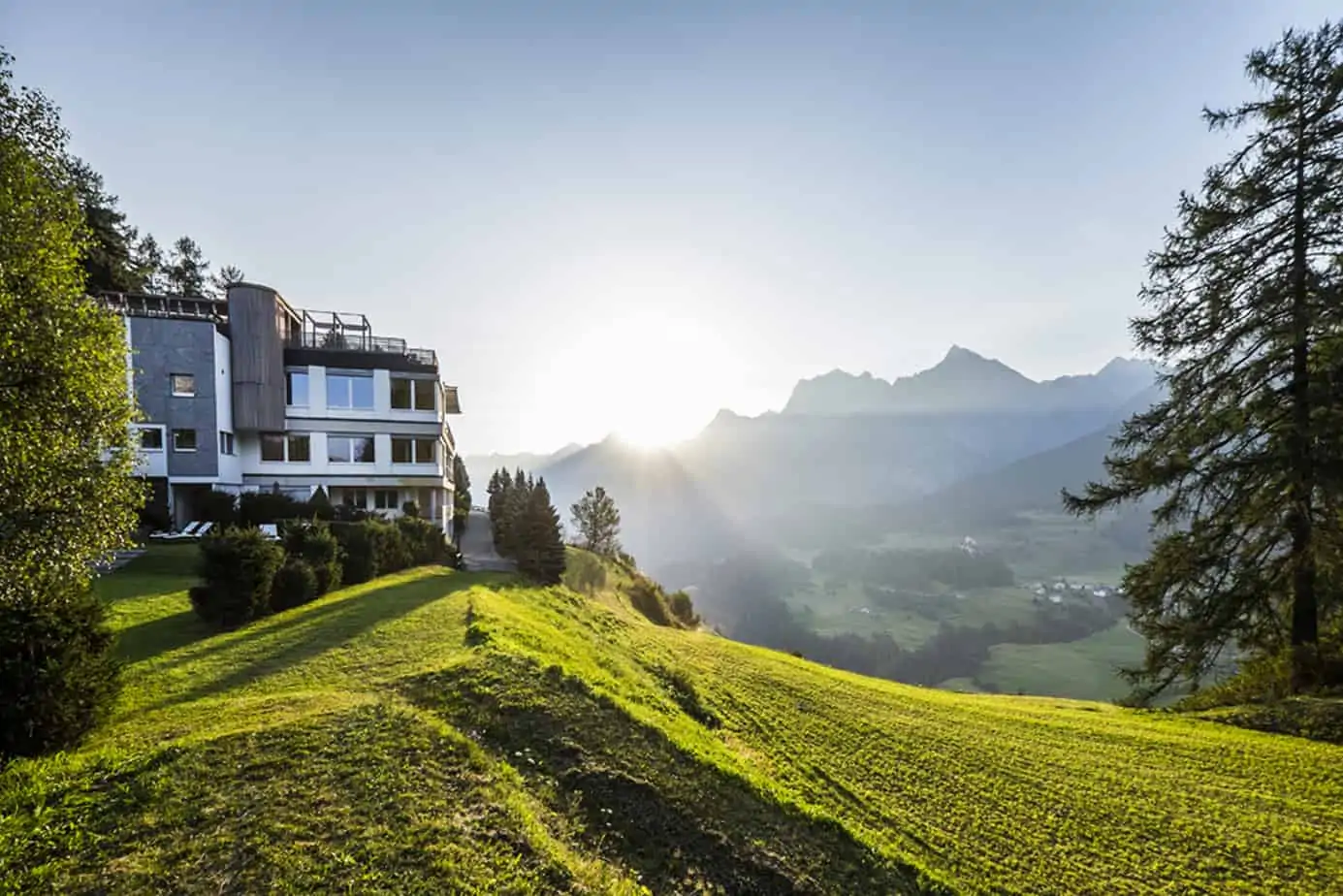“For me, luxury means authenticity”
Meike Bambach, awarded Swiss Hotelier of the Year 2019, knows the top hotel industry perfectly. She has worked at the Beverly Hills Hotel in Los Angeles, in Hong Kong and at the Louis C. Jacob in Hamburg. For more than ten years she has ended up in the Swiss mountains – in the 5-star hotel Paradies in the town of Ftan with only around 500 inhabitants, she has developed a new, sustainable concept of top hotels, which meanwhile also attracts more and more golfers who play on the courses of Zuoz and play Vulpera .
Has the topic of sustainability arrived in the top hotel industry?
Bambach: It is now undisputed that we have to take care of sustainability. It used to be said that luxury equals abundance. From the farther away the fish got, the better it was. Luxury was equated with mineral water from Fiji, which was then drunk in Hanover. That has changed very clearly. People just don’t want the superficial, the banal anymore. That is why the focus is also placed on other areas in the hotel industry. For example, today it is a luxury to have your own well. The “back to the roots” aspect and the authentic experience are equated with sustainability.
Is the implementation of sustainability in the hotel industry very cost-intensive or does it perhaps even save costs?
Sustainability can save costs. It also applies, for example, to the subject of throwing away. In the hotel restaurant there is the example with the bread. On the one hand, a bread basket is automatically placed on the table for each guest – on the other hand, many guests have weight problems and carbohydrates are no longer popular. It would be sustainable to ask the guest whether he wants bread at all. Most hotels can reduce their bread consumption by 70 percent because the guests don’t really want that much bread. It is therefore also important in the hotel business to deviate from behavioral patterns and try out new things.
Is it easier to implement sustainability concepts in a hotel that is surrounded by nature, or is it just as easy in a city hotel?
Of course it’s easier when you can pick the lettuce on your doorstep, as it is here in Ftan, than when you have to get edible herbs or flowers in a city hotel in Frankfurt. That’s a lot more complicated. Regardless of the location, however, it has always been important to me to make people with emotional aspects beautiful. This is easier when people are more receptive to it. You can now see that this aspect has become much more important to many travelers than the fourth light control in the room or a gold-plated spoon.
With the Paradis in Ftan you have taken a completely new path and have turned away from the classic booking and payment system and switched to a private club model. Why?
The challenge was simply to create a secure financial future for such a small house as Paradies. As a 23-room hotel, you’re at risk because you’re not producing enough volume to be commercially relevant. On the other hand, the “expensive” aspect is difficult to sell when, like us, you are based at the end of the world in a little developed area. The market is difficult to reach there, you have to spend a lot of money on marketing and communication.
What is luxury if you can’t see it in the form of a large spa, technical details or other fancy details?
For me, luxury means authenticity and for the guest the opportunity to move freely without any regulations. From our point of view, this is a huge added value and starts with the fact that there are no breakfast times, for example. Free choice is a great form of luxury.
Whoever comes to Ftan first experiences only nature. Can guests immediately deal with the fact that there is only silence?
Indeed, there are people who struggle with the seclusion, the lack of stimuli and the completely natural environment. Many people are very tense and stressed. But things that are simple and unexcited bring people down relatively quickly. Incidentally, we also find that time and again that the guests are always willing to adapt voluntarily if they are not under any pressure or compulsion.
Sustainable hotels also include the discussion about poorly paid seasonal staff – how do you deal with that?
This is very different internationally. In Switzerland there are collective agreements with wages that you can live on even if the cost of living is higher. Nevertheless, the hotel industry is dependent on seasonal workers. This cannot be changed in Switzerland either, because the Swiss themselves rarely want to work as seasonal workers. Here, for example, a lot of work is done with the Portuguese.
Has the luxury hotel industry increasingly discovered the topic of sustainability as a result of the Corona crisis?
I’m relatively skeptical about that. Personally, I strongly reject the dumping price model because a certain performance has a certain value. If this value is not appreciated and the customer wants the product cheaper, it will not work economically in the long run. In addition, the margins in the hotel industry are sometimes extremely narrow and we often make the mistake of offering our services below value.
So does the guest have to be able to afford sustainability on vacation?
In my view, understanding the costs of a product has little to do with one’s own assets, but simply with understanding the sustainability aspect. It just begs the question of whether I need to eat a cheap cut of lamb that has previously flown halfway around the world, or eat lamb less frequently and eat a cut of local lamb that costs more but doesn’t harm the environment. There are guests who realize that they don’t want to harm the environment, but there are also guests who would rather save and ask for it more often on vacation. In the end it is a question of personal responsibility.







